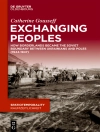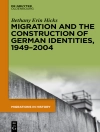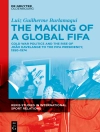In the early modern era European identity was expressed in the vision of Europe as a Christian republic. With the 18th century’s enlightenment the idea of European culture developed. Europe’s identity was its culture. The wars and crimes of the first half of the 20th century put an end to this certitude. Instead of the unifying European culture the project of European unification in the areas of economy, politics, society, education, science, culture etc. was born. Up to today no European identity or as former president of the European commission Jacques Delors said: ‘Giving Europe a soul’ has been created. European identity remains a challenge for the future.
The integration and conflation through globalisation questions the paradigm of unity. Step by step this paradigm is replaced by that of cohesion in a globalising world. Thus European identity must rather be understood as cohesion in global plurality than as a unified entity.
For the first time a history of European culture beginning with the 15th century, taking even older sources into account, until today is presented. This work gives a reliable base for examinations of future European identity.
Despre autor
Professor Dr. Schmale is full professor for modern and contemporary history at the university of Vienna.












